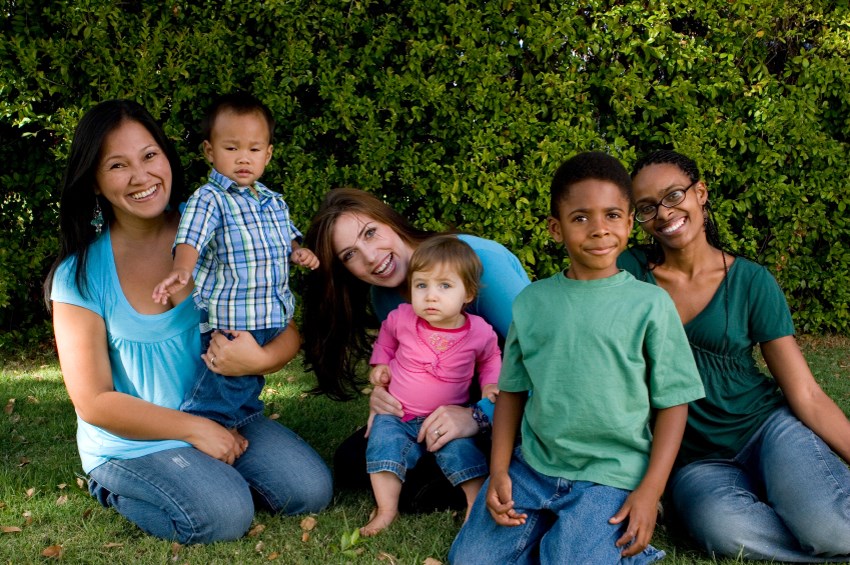TCW Talks to . . . Sherry Surratt
Sherry Surratt has filled leadership roles her entire adult life. Married 31 years to her husband Geoff, the two have worked various church ministry jobs. Most recently, Sherry was offered the CEO position at Mothers of Preschoolers International (MOPS), the Colorado-based Christian organization. Now, nearly two years into her role, Sherry's finding surprising synergy between her previous life and work experiences. Today's Christian Woman talked with Sherry to find out how this proud grandmother of two granddaughters is leading a new generation of moms.
Before becoming CEO of MOPS, you had a successful career with Leadership Network and other church ministry roles. What prompted you to change jobs?
Geoff and I had just made a big, hard move to California so he could work at Saddleback Church, and we had only been there 10 months. When I was referred and MOPS asked me to consider the CEO position, I dismissed the idea. My husband Geoff suggested I pray about it. I was amazed he was willing to consider moving again. It's huge to have somebody in your life who will believe in you and be behind you.
How did you know it was the right move to make?
My Strengths Finder profile says I'm a Maximizer and Achiever. If I see something that has potential, I like to take it from here to there. That fits well with MOPS. It's a 40-year-old organization, and they are ready to try some new things. The Achiever in me never wants to stop. I love taking people further. I feel these are helpful qualities for a CEO—to see what could be, and to inspire others to work toward those goals.
In Just Lead, you talk about how everyone has leadership fears, and we need to name them. What are some fears you've had to confront at MOPS?
Stepping into the CEO role at MOPS, I realized I had failed before. But this would be an opportunity to fail at a national level with people watching! That's my biggest fear—that I'll fail. That's all wrapped up in messy stuff—pride, wanting to be good and be noticed. I have to remember that God made me, and he knows what he can do through me. His Word tells us he'll give us wisdom. It's one thing to ask God for wisdom; it's another thing to ask God to give me the wisdom to elevate someone else and take my pride and shove it to the side. I still worry about what people are thinking and saying about me. I have to work on this daily.
MOPS focuses on reaching moms at a very specific point on the parenting timeline. What's so special about mothers of preschoolers?
We target moms in this stage of life because they're most looking for help and most struggling. When your kids are young, you're isolated with them. You need input; you want to talk to people about being a mom, but you're not with people and your life has changed so much. Your body has changed, your relationships have changed. In our MOPS groups, moms can talk and lean into the mentors and talk with other moms. One of the things that happens in the group is the "me too" factor. Every mom thinks she's the only one thinking or experiencing something. Then she realizes another mom is thinking the same thing. God designed us that way—we need him and we need others. The reason why we partner with churches is that we don't just want moms gathering together; we want moms with Christian mentors. When a mom knows Jesus, she changes her world.
What are some key areas where you see moms struggling?
From our research, we know the five key factors for becoming strong moms: quality friendships with other moms who won't judge (a network of support—somebody with wisdom and a bit farther down the road who can say you'll be okay); a core relationship (ideally a husband, but if not, then an anchor, so that no matter what happens, that core relationship will be with them); work on tactical parenting skills (you need resources; how does a mom know about breastfeeding? You need to be able to talk with others and hear what the experts say and what that means to you); core resilience (the emotional stability that helps you bounce back when life gets hard), and ultimately a relationship with Christ— spiritual development. I see moms struggle most with this last piece. Many times they don't feel they need this.
Have these five key needs changed since you were parenting kids?
Yes! Here's what's changed: Our society is so mobile now. The average family will move 7 times from the time a child is born to age 17. That means there aren't constant relationships. This is very different today from 20–30 years ago. Society has changed with access to social media. Moms may feel they are connected because of Facebook, but it doesn't replace the presence of real, live friends in your life—someone who can put an arm around you and say it's going to be okay. How the Millennials view church is very different. They see no need to go to church. Thirty or forty years ago, that wasn't true. MOPS is a door back into the church again.
Does being a mom help women grow into leaders?
When I became a mom, I realized mothering was not about me. It's about influencing generations to come. We don't parent for today; we parent for the future. That's an important aspect of leadership. The things mothers do for preschoolers today are to build resilience for the future. This is key to learning how to lead.
What are other ways mothers can learn to lead well?
If God has given you a baby, he has called you to momhood. And whether you're working at a high profile job or changing diapers, his promises say if he's called you to something, he'll equip you. He'll give you everything you need to accomplish it. The world causes us to doubt that. You can live your life feeling overwhelmed and inadequate. Or you can live with confidence in what God has called you to do.
Read more articles that highlight writing by Christian women at ChristianityToday.com/Women








 Homepage
Homepage





